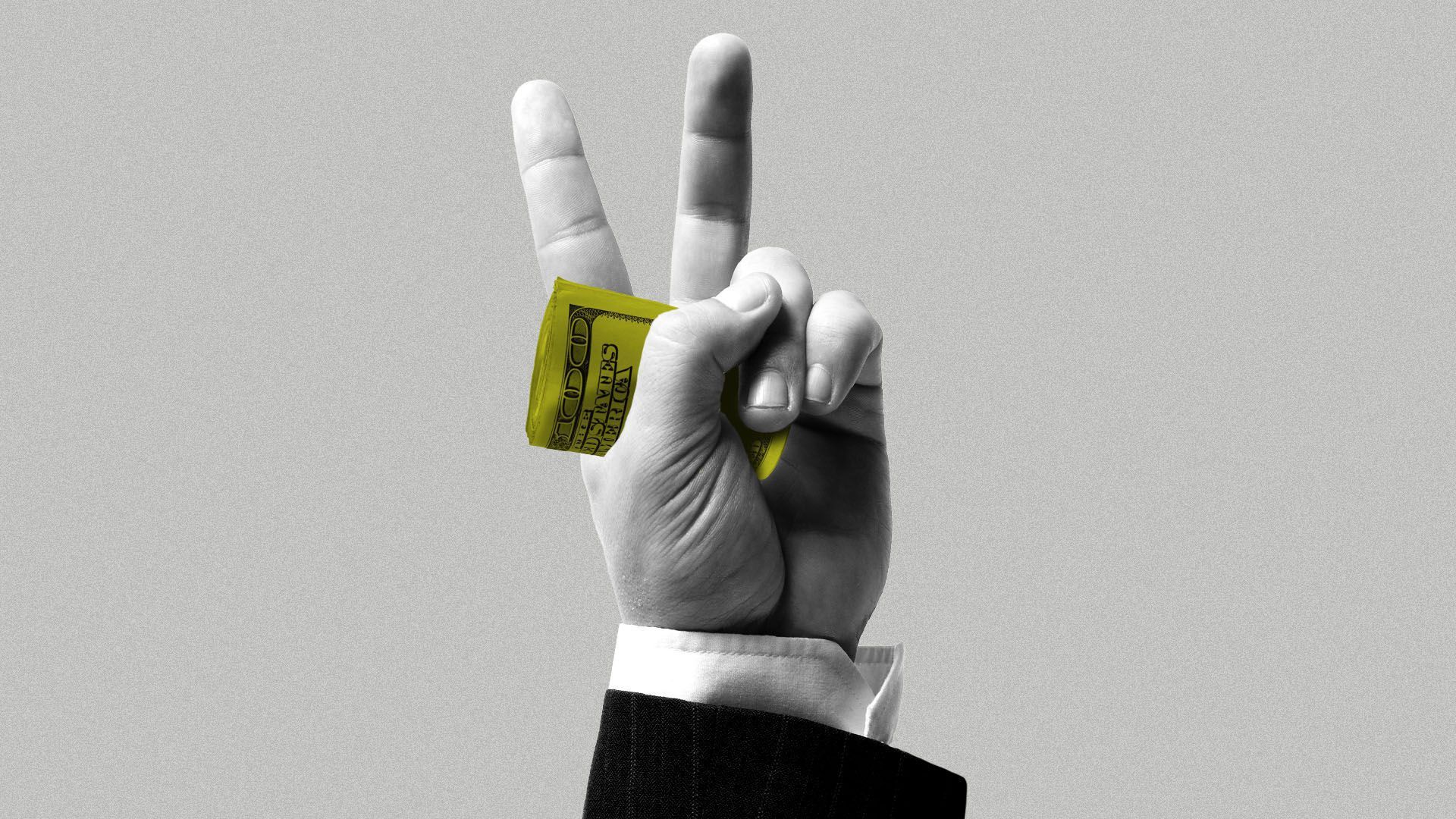Companies face purpose paralysis
Add Axios as your preferred source to
see more of our stories on Google.

Illustration: Sarah Grillo/Axios
Companies may feel more pressure to speak out about controversies than in the past. But boycotts against Coca-Cola and Nike this week demonstrate why it's not always a cut and dry win if they do.
Why it matters: Two years ago, hundreds of top CEOs agreed their purpose shouldn't just be about shareholders, but all stakeholders — including their supply chains, customers and employees.
What's happening this week...
On the one hand, Coca-Cola is learning that if you speak up about something once, there is an expectation to follow through all the way:
- Activists say they will boycott Atlanta-based Coca-Cola for not outright condemning a newly passed bill that changes voting laws in Georgia.
- "This past summer, Coke and other corporations said they needed to speak out against racism. But they’ve been mighty quiet about this," organizer Bishop Reginald Jackson told the Atlanta Journal-Constitution.
On the other hand, retail brands like H&M, Nike and Burberry are learning that if you speak up about concerns, it can backfire if one of your top markets is notorious for evading those issues:
- In China, all three companies are losing Chinese brand ambassadors, facing boycott calls and being wiped off state-controlled apps after speaking out against sourcing products from Xinjiang because of forced labor concerns.
- "Companies are really in the crosshairs ... with the potential of losing access to the consumer market," Mary Lovely, a senior fellow at the Peterson Institute, a think tank, tells Axios.
- If the subsequent stock price drops are any indication, there are fears the tension will crimp sales. Shares of Nike and Adidas fell as much as 5% on Thursday.
The bottom line: Companies have moved away from saying they care only about growth. But if standing up to issues also gets them in trouble, what should companies do?

